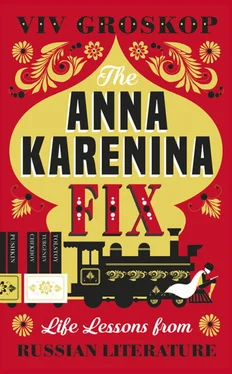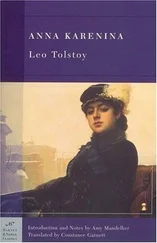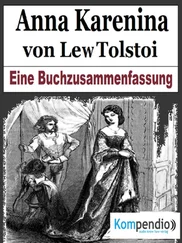It was something of a relief to find that Masha was laid out looking like Masha, her face peaceful and serene and glowing with recently applied Clinique blusher. I tried not to look appalled that she was wearing a white lace wedding dress. ‘ Nevesta Khrista ’ – ‘a bride of Christ’ – one of the girls whispered to me. We were expected to lean over and kiss her. I only pretended to do this. By this point, I had realized that I was well out of my depth and just the fact of my presence in this country where I didn’t belong, among this group of friends where I didn’t belong, had tipped into the horrifically inappropriate.
The next few hours are a blur. But the worst bits stick out. Having to walk for ages to the site of the grave because suicides are not allowed to be buried in the main graveyard. Her mother almost throwing herself into the grave with grief, screaming, ‘My little kitten!’, all the other women crying and keening. Wishing that I didn’t know enough Russian to know that she was screaming, ‘My little kitten!’ The wake, at a horrible beige hotel where it became obvious that we were going to go round the table and say something moving about Masha and I had no idea how to say something respectful and honest in decent enough Russian. Realizing that I was going to have to eat koliva , which is a funeral dish of rice and sultanas and truly horrible. It’s a staple of the Orthodox Church. Everyone else seemed to cheer up at the sight of the koliva . ‘Maybe they don’t get many sultanas in their diet,’ I thought. It would later turn out that I was right about this.
It was one of the most upsetting and tragic days for everyone there, and I blocked it out almost as soon as it happened. In the years to come, I was to have many joyous and life-affirming experiences in Russia and with Russians. So it’s unfair to let this day stand in for ‘the Russian experience’. What happened was a terrible tragedy, and it was an extraordinary privilege, in a way, to witness something like this as an outsider. But it was also incredibly weird and distressing. And it did feel like fate. Whenever I questioned how Russian I could ever really be, no matter how well I learned to speak Russian, no matter how many books I read, no matter how much I tried to understand and empathize, everything would always come back to that day and how alien I felt. I could pretend all I liked. But I would never, ever be Russian. And I would never, ever take make-up I wanted to use again to a morgue.
Of all the novels that explore Russianness in the twentieth century, Doctor Zhivago has marked itself out as the ultimate. The words ‘fate’ and ‘soul’ come up constantly in the novel. Death is never far off. But, this being an epic novel, it’s also full of life: Doctor Zhivago is infused with the dirty, smoky smell of fried chicken, the stench of everyday life is barely masked by eau de cologne, and there are splashes of colour everywhere, especially mauve. (Coincidentally, also a colour Nabokov uses frequently.) Doctor Zhivago himself is in some ways the ultimate Russian literary hero: a poet and a doctor who is not quite a product of the revolution but not quite an enemy of it either. The boy we see at his mother’s funeral grows up to write poems, which are reproduced at the back of the novel. Pasternak was better known as a poet before he became famous for this novel.
Doctor Zhivago was published in 1957 and swiftly translated into English. Within two years, it was at the top of the bestseller lists in the United States. In 1958, Pasternak won the Nobel Prize in Literature. The story of the novel takes place between the revolution of 1905 and the civil war, with the epilogue leading up to the 1940s. It’s an intimate portrait of the damage caused by political upheaval. Zhivago the boy comes from a wealthy background. His mother has consumption and travels regularly to France and Italy to try to get better. He knows that his family name is so important it has lent itself to banks and factories. There is even such a thing as ‘a Zhivago tie-pin’ and a cake shaped like a rum baba known as ‘a Zhivago bun’. But Zhivago’s father, whom he never knew, gambled it all away and his mother and he were left poor.
The father kills himself by jumping out of a moving train. (I know. Again with the train and the suicide. Let’s not even get started on this.) His lawyer, Komarovsky, travelling with him, makes everyone on the train wait while a statement is drawn up. Yuri is taken in by family friends, the Gromekos in Moscow. Their daughter Tonya is like a sister to Yuri, and an understanding arises that they will marry each other. Meanwhile, also in Moscow, an exceptionally beautiful young woman, Lara, helps her widowed mother (‘a Russianized Frenchwoman’) to run a struggling dressmaking business. Komarovsky acts as their patron.
When Lara turns sixteen, Komarovsky invites Lara to a ball and draws her into a sort of coercive affair. Lara’s friend Pasha Antipov is distraught that she won’t marry him and throws himself into revolutionary activities. Lara marries Komarovsky and has a child. Around the same time, Tonya and Zhivago marry. Then comes the revolution and war, many lose their homes and Moscow is evacuated. Zhivago and Lara meet properly for the first time when he is volunteering near the front line as a doctor and she as a nurse. Nothing happens between them, but he comes to associate her with the smell of an iron burning through fabric. (I know, I know. This is an extremely eventful novel. I’m summarizing it as best I can.)
Later, as the revolution takes hold, the Zhivago family escapes to the family’s dacha at Yuryatin, where they think they will be safe. As ‘former people’ (of the middle class or aristocrats, rather than workers), they are not really safe anywhere, and Doctor Zhivago is likely to be called upon by the regime for his medical skills, something he is not happy about. By a monumental coincidence, Lara is nearby. She and Zhivago begin an affair. One day, when Tonya is heavily pregnant, Zhivago goes into town and is kidnapped by the revolutionary forces, who forcibly recruit him as their doctor. He has no way to get a message to Tonya or to Lara. Months later, he returns. Tonya has gone. Lara is still there. The two of them decamp to the Gromekos’ dacha, aware that Zhivago is wanted by the authorities for his anti-regime poetry. Komarovsky, Lara’s estranged husband, comes to warn them that they are going to be arrested. Zhivago decides to let Lara and her daughter be saved. He stays and is arrested. They never see each other again.
So much fate and so much coincidence. Fate is one of the most obvious themes: ‘“And why is it,” thought Lara, “that my fate is to see everything and take it all so much to heart?”’ Personal fate is important. Especially who comes into your life at what particular moment. But historical fate is equally important: it can influence your personal fate in a positive way or totally mess everything up for you. Perhaps what Pasternak is searching for here is an answer to the question: ‘How can you be yourself when you are being blown in a million different directions you can’t control?’
When it was first published, the book was seen as a defence of the individual broken by the state. It’s still not clear how controversial Pasternak initially intended the book to be. He said: ‘The revolution is not shown at all as the cake with cream on top which it has always been made out to be as a matter of course.’ That’s a long way off from saying that the revolution was a waste of time. Possibly, he wanted to write a book that would be critical but would still be published and read. Or possibly, like Doctor Zhivago, he had an ambivalence about the regime: he could see the point of view of the workers, but he could also see that it had all gone horribly wrong.
Читать дальше












